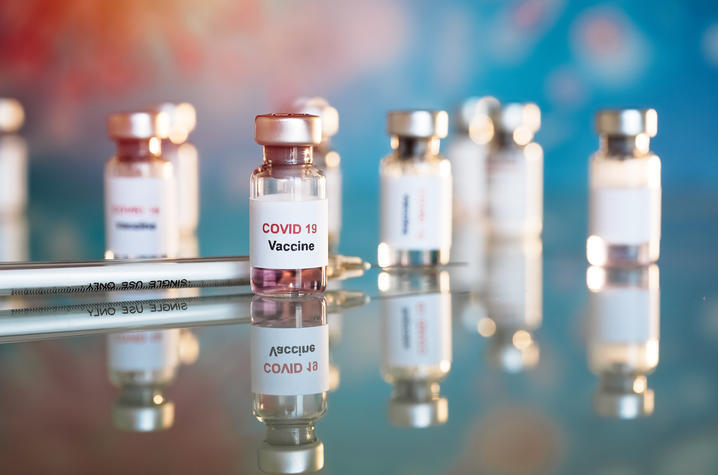Answers to Common COVID-19 Vaccine Questions

The University of Kentucky Public Relations & Strategic Communications Office provides a weekly health column available for use and reprint by news media. This week's column is by Kimberly Blanton, Enterprise Director of Infection Prevention & Control and Patient Safety at UK HealthCare.
LEXINGTON, Ky. (Jan. 11, 2021) — As the COVID-19 pandemic continues throughout Kentucky, the U.S. and the world, it is welcome news that vaccines are starting to be available to frontline workers and the most vulnerable populations.
As the COVID-19 vaccine becomes increasingly available over the next several months, many questions may arise. Below are answers to some of the most commonly asked questions.
How do COVID vaccines work? As is the case with other illnesses such as influenza, the COVID vaccination will help your body create antibodies to prevent contracting severe COVID disease. Even if you do become infected, chances are that you will not experience symptoms, or they will be mild.
Is it possible to contract COVID-19 from the vaccines being produced? No. None of the vaccines currently in development use a live virus. The Centers for Disease Control and Prevention website has more information.
Is the vaccine safe for those who have been COVID-positive and still have antibodies? The recommendation is to get the vaccine due to evidence that COVID reinfection is possible.
If I’m pregnant or nursing, should I get the vaccine? Please discuss vaccination with your provider. For more information, you can go to the Society for Maternal-Fetal Medicine statement on SARS-CoV-2 vaccination or the American College of Obstetricians and Gynecologists statement on vaccinating pregnant and lactating patients against COVID-19.
If I’ve already had COVID-19, do I need a vaccination? Yes. There is not enough evidence to indicate how long your existing antibodies would be protective.
If I’m immunocompromised, should I be vaccinated? Please discuss vaccination with your provider. Every immunocompromised patient is different, and your particular circumstances should be taken into consideration when making that decision.
After vaccination, how long does it take for the vaccine to be fully effective? About seven to 14 days after the second dose.
How long the vaccine will last? Will we have to be revaccinated each year like the flu shot? Currently, we do not know. As more time goes by, more data will emerge and more information will be available.
Can I stop taking safety precautions after getting a COVID-19 vaccine?
Experts want to learn more about the protection that a COVID-19 vaccine provides and how long immunity lasts before changing safety recommendations. Factors such as how many people get vaccinated and how the virus is spreading in communities will also affect these recommendations.
In the meantime, the Centers for Disease Control and Prevention recommends following these precautions for avoiding infection with the COVID-19 virus:
- Avoid close contact.
- Wear cloth face coverings in public places.
- Practice good hygiene.
- Stay home if you're sick.
As the state’s flagship, land-grant institution, the University of Kentucky exists to advance the Commonwealth. We do that by preparing the next generation of leaders — placing students at the heart of everything we do — and transforming the lives of Kentuckians through education, research and creative work, service and health care. We pride ourselves on being a catalyst for breakthroughs and a force for healing, a place where ingenuity unfolds. It's all made possible by our people — visionaries, disruptors and pioneers — who make up 200 academic programs, a $476.5 million research and development enterprise and a world-class medical center, all on one campus.




